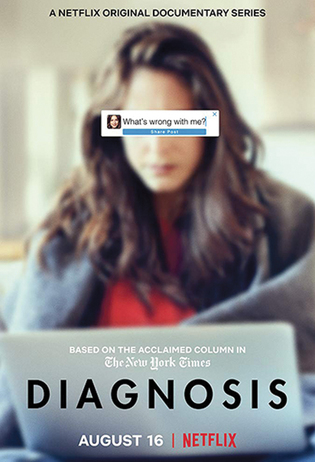 loading
loading
Reviews: November/December 2019 View full imageDiagnosis Arts journalist Mark Blankenship has written for the New York Times and Variety and hosts on iHeartRadio. Many of us rely on our fellow internet users to recommend a brunch spot. But should we trust the electronic masses with our lives? The documentary series Diagnosis suggests it’s worth a shot. Diagnosis is adapted from a New York Times Magazine column by Lisa Sanders ’97MD, an associate professor of medicine at Yale. Each column features a patient with a confounding illness that a doctor had solved. In April, Sanders started crowdsourcing the unsolved problems: she asks readers to submit opinions about symptoms that baffle the patient’s doctors. She then helps each patient to read the responses, hoping to find an answer. Sometimes, this leads to life-changing revelations, as when Italian doctors tell a Las Vegas woman how to treat her debilitating pain. And even when it doesn’t deliver conclusive results, the feedback matters. For one woman with unexplained bouts of paralysis, finding someone with a similar problem assures her she’s not alone. Such moments illuminate the need for humane contact in the medical industry. We’re shown people panicking about costs, struggling to navigate bureaucracy, or recalling doctors too busy to pay attention. It’s heartening to see kindness hacking through that briar patch. Granted, Diagnosis also uses manipulative television tropes. Several scenes of crying family members feel rehearsed, as though the relatives were asked to repeat their breakdown for the cameras. One woman films her grandson having a seizure, and it’s hard to see how airing this does anything but exploit him for dramatic stakes. But even as it plays by the rules of reality TV, the series remains generous and empathetic. It assumes that viewers will care about these strangers in need, and that faith in our common decency can be curative, too.
The comment period has expired.
|
|